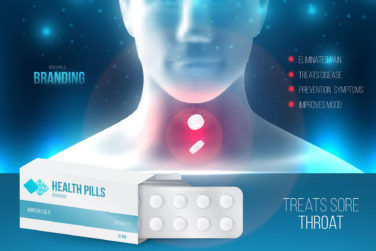The healthcare marketing industry is changing and has been for some time. A sales representative used to walk into a doctor’s office and meet with them face to face. Today, the chances of that same sales representative getting facetime with that same doctor have markedly decreased—a change only exacerbated by the restrictions imposed by the COVID-19 pandemic. And while the number of in-person interactions with healthcare professionals (HCPs) has decreased, the benefits of personalized promotion have not. This leaves pharmaceutical companies struggling with the challenge of delivering personal promotion without actually being in person.
As consumers and companies alike adjust to the post-pandemic world, so too must the way we market to them. Most notably, sales representatives need a new way of fostering relationships with HCPs while also considering their limited bandwidths—both in-person and online. We know one of the best solutions to this challenge is omnichannel marketing, but many struggle with successful implementation. Any successful omnichannel campaign should incorporate three major factors—if you don’t have these right, you may be left scratching your head as to why things are not working out as planned.
Omnichannel Is Driven by Strategy, Technology, and Analytics
The foundation of an omnichannel strategy is a scientific story and the audience to whom you are telling it. However, many companies struggle with telling that story to the right person at the right time. The technology deployed along with the analytics that are feeding your campaign are just as critical as the story you are trying to tell—and they often are overlooked.
To implement an omnichannel ecosystem, companies are making large investments into their technology platforms, including master data management (MDM), customer relationship management (CRM), and marketing automation platforms. They may also have customized sales enablement tools. Ensuring that this ecosystem of data and technology can communicate and provide insights is essential for an omnichannel strategy that is meaningful to customers.
This is no easy task, and it takes thoughtful execution and understanding of how a company’s technology stack is connected and how easily it is accessible to harvest the necessary insights to drive customer engagement. Once the technology is in place, having the proper artificial intelligence (AI) engine that can interpret all this data and identify where your customer is in their journey will allow you to know what needs to happen next to drive HCP engagement.
For pharma companies, developing an omnichannel strategy means more than just figuring out their next best action. It helps them reconstruct their brand landscape and create a powerful, cohesive, and personalized customer experience for their target audience. Instead of bombarding HCPs with disjointed messaging seemingly at random, having the proper omnichannel ecosystem in place allows for a coordinated brand story—and customer journey—to emerge across all of a brand’s communication channels.
And finally, by setting up the proper omnichannel ecosystem, brands can increase the amount of personalized marketing they deliver to HCPs even when they are not in the room with them. As physicians begin to engage more meaningfully across a brand’s communication channels, the more targeted action brands can take from the analytic insights they collect. This real-time feedback serves as a way for brands to “listen” to their audience and make timely refinements to their brand messaging to deliver a more relevant user experience.
Omnichannel marketing allows pharmaceutical companies to interact with HCPs in a way that is cohesive, insightful, and constantly evolving to meet every physician’s needs and foster more meaningful brand engagements. But it doesn’t just enhance the overall brand—it also directly benefits the company’s bottom line. So, once the omnichannel ecosystem is in place, what other technology improvements can you make? It’s time to provide sales reps with cutting-edge sales enablement tools and technologies.
Ready for More Meaningful HCP Engagements?
Once brands have listened to their target audiences’ feedback, it’s crucial for them to respond appropriately. That’s where sales enablement software comes in. Marketing automation’s benefits have become increasingly clear over the past few decades, especially as it continues to evolve to meet the needs of digital marketing. Today, it allows pharmaceutical brands to support HCPs no matter where they are by automating their sales force’s ability to create and distribute modular content.
This software enables sales representatives to pull from pre-approved marketing materials to effortlessly build and customize content that meets the specific needs of each physician. As a result, modular content has emerged as an answer to the challenge of delivering personalized marketing at a time when the healthcare industry has begun to demand nonpersonalized methods. It’s an easy way for sales representatives to serve HCPs the right message at the right time, because it helps create a dynamic, personalized, and engaging customer experience for physicians—both in and out of their office.
In an industry as ever-changing as healthcare marketing, an omnichannel strategy that has a well-connected ecosystem rooted with data and insights is the solution brands have been looking for to ensure they don’t lose their relationships with HCPs.
But pharma companies need to do more than just adopt omnichannel marketing—they also must automate their ability to create modular content to support this new marketing strategy. By doing so, they will be able to maximize their sales force’s marketing efforts by allowing them to seamlessly engage their customers through both personal and nonpersonal promotion—every time.









